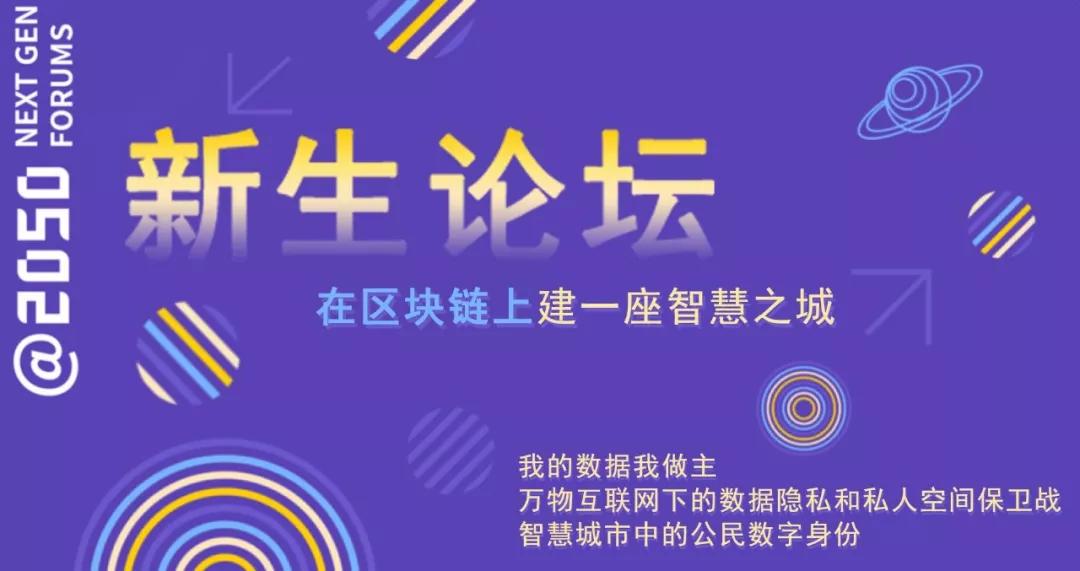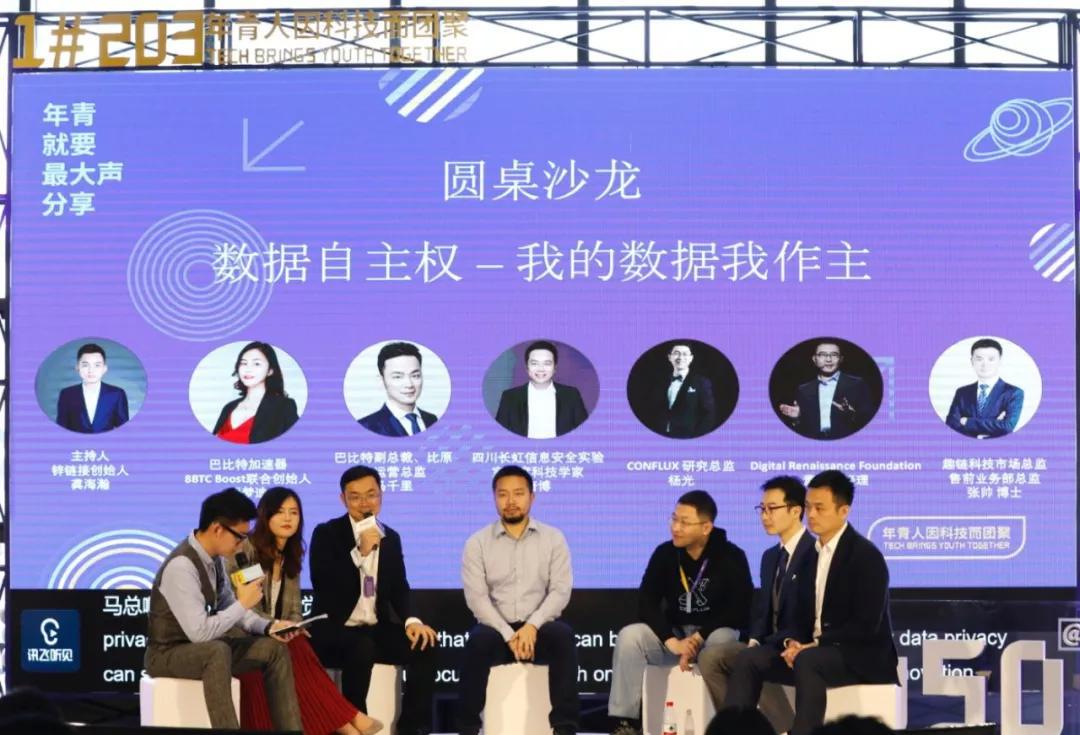Opinion | Data autonomy: my data I am the master

Text: Yi Baizhen
Editor: Wang Qiao
The so-called "privacy" means "not enough for outsiders." In the primitive society where clothing is not covered, the concept of "privacy" is indifferent, and the division of public and private boundaries and the emergence of privacy concepts are gradually taking shape with the development of human civilization.
- The exchange is robbing the tokens, all of which are behind the interests.
- Blockchain: Casting a new financial civilization
- Is Bitfinex and Tether actually a victim? The culprit behind the scenes is it!
In some countries in the West, personal privacy lives like private property and are inviolable. However, with the advent of the data economy era, on the one hand, people's daily behaviors are collected into data by devices, analyzed and processed through calculations, giving people a more convenient economic life.
On the other hand, living in the era when "Big Brothers Monitor You", people can't help but fear that private space is being gradually eroded. The privacy and security of data are as fragile as dead leaves, and they are in danger of being illegally exploited or exposed.
Some people think that " everything is gone, leaving traces", what happened is like a never-ending packet, and with a little evidence, you can discover the truth. The next civilization of mankind may be based on the fact that there is no privacy and the information is highly symmetrical.
In the construction of a smart city, in the face of the game between the certainty of technology manufacturing and the uncertainty of human nature, can my data be decided by me?

2050 scene photo Zinc link shooting
On April 27th, at the new forum of “Building a Smart City on the Blockchain” at 2050@2019, the founder of Zinc Link Gong Haijun and the co-founder of Babbitt Accelerator Hu Mengdi invited a number of blockchains and smart cities. Professionals in the field conducted a round-table discussion on the theme of “data autonomy: my data is my master” and carried out a collision of ideas on the contradiction between urban development and data security and privacy protection.
Zinc Link: What do you think of the concept of privacy? Do you think that privacy security issues will be abrupt in the construction of smart cities?
Hu Mengdi (co-founder of the Babbitt Accelerator):
In fact, the data is divided into two categories, aggregation classes and privacy classes. The data of the aggregation class is usually anonymous. It aggregates the data of many people and obtains key tags and information, such as the big traffic in the city, which is relatively safe.
But there are a lot of privacy data, such as some personal information collected by smart city related sensors, which are relatively private. In the era of data economy, individuals are increasingly relying on their own data, as well as the identity of the online world, so data privacy and security are increasingly important.
The European Union has recently issued a law that has reached a certain level of data privacy protection. Smart city construction can bring us convenience, but data privacy is also critical. But if you focus too much on the protection of the law, it may limit innovation. This requires a balance point.
Ma Qianli (VP of Babbitt, Director of Operations than the original chain):
The most important thing to deal with privacy issues is to define privacy first. I think the data is divided into two categories, the identification data, the behavior data, and the privacy of the data and the privacy of the behavior data. The privacy of the data of the right category is absolutely personal, including deposits, real estate and other information, the government and society should protect. On the other hand, behavioral data, which is the raw material for big data. This type of data corresponds to relative privacy, such as user browsing habits, need to be anonymized, so that personal privacy protection can be achieved.
Tang Bo (Chief Scientist, Sichuan Changhong Information Security Laboratory):
The simple answer is not very awkward, because we are already in a world where privacy and security issues are serious.
Today's smart devices, including mobile phones, TVs, and speakers, have the ability to collect our private data. These data are part of the smart city's construction, and suppliers or operators collect it through equipment, but everyone has concerns about the collection and use of data.
The blockchain is a good aid in these two aspects. On the one hand, smart contracts can be combined with other methods to specify which data to collect and where to go. On the other hand, in the use of data, the intelligent contract constraint system of the blockchain uses this information, and even traces the authorization of the information producer of the terminal.
Therefore, in smart cities, including smart homes and industrial Internet, data is a core asset. Protecting these assets can be achieved with some mechanism of the blockchain.
Yang Guang (Director of Research at CONFLUX):
Privacy security is actually a very important issue. In fact, our convenience needs to have a priority order. How much convenience can reveal how much privacy an individual has? For example, optimizing the signal light, saving one minute and exposing all the whereabouts, I believe many people will not agree with this matter.
But if you count by big data, you won't be accurate to everyone, and no one can get specific data from it. When the income is higher than the privacy, everyone will do it. So I think we need to measure from these two aspects.
Cao Yu (Chief Architect and Founding Partner of Energy Blockchain Lab):
The EU Privacy Act, called GDPR, is a general data protection bill that was enacted in a large context. The promulgation of this bill is to protect the privacy of European citizens on the one hand, and to enable small and medium-sized Internet companies in Europe to have their own development space and reduce the impact of large foreign Internet companies such as Google and Facebook. Behind the introduction of the protection of privacy policy, there are some reasons for utilitarianism.
But in general, I think the EU government has opened a very good head. In the era of very large foreign Internet companies, the phenomenon of “big data killing” is frequent, and this situation is very dangerous. The government, especially the law enforcement agencies, is far less capable of mastering data and technology than these big companies, and at the same time lacking the identity of people such as data prosecutors and technical prosecutors. The EU government knows its limitations and has introduced GDPR, allowing citizens to make their own choices without protecting the privacy of all citizens.
Zhang Shuai (Director of Market Marketing, Director of Pre-sales Business):
I very much agree with the question that Mr. Cao said, to give citizens the right to choose and self-determination. Smart city construction often involves some cameras and sensors, and some new problems may arise during the data accumulation process. For example, when we went to the hospital to see a doctor, there were some technology companies that provided free WiFi for the hospital. If you watched the 315 party, you will know that there is a technology called WiFi probe. Regardless of whether you connect to WiFi or not, you can know which department, which check, and which ward you stayed in based on the MAC address of your mobile phone. Based on these data, you can roughly determine your situation, and then sell this data to insurance companies or other affiliates. Therefore, in the construction of smart cities, it is necessary to respect the privacy rights of citizens.
Zinc Link: Solving data privacy issues often requires some cryptography applications. What is the role of the blockchain? How does blockchain technology enable data traceability, confirmation, and revenue?
Zhang Shuai (Director of Market Marketing, Director of Pre-sales Business):
Talking about data privacy protection, the first point is to identify the individual's digital identity in the data world, and the second is to clarify the source of the data. With this data, how to use the data and what kind of benefits are generated must be clear.
Placing a digital identity on a blockchain indicates the association of the individual with the physical world. All operations in the blockchain require a digital identity-based authorization. To give us a case we are doing now, we will jointly authorize the tax bureau and banks to grant credit to enterprises, and provide the company's data to the bank so that the bank can have a clearer understanding of the overall situation of the company. The tax bureau also needs to determine how the bank uses the data, corresponding to the true will of the data source company. Based on the digital identity, we identify the source, usage, and benefits of the data based on the authorization of the blockchain smart contract.
Cao Yu ( Chief Architect and Founding Partner of Energy Blockchain Lab ):
The most important empowerment of the blockchain is the assertion of data privacy. This may be a coincidence, China's BAT (bat), the United States's Fang (claw), they are like fangs, like bats, eroding our privacy and health. The role of the blockchain is to go to platform and decentralize. In the future, we don't need a company like Baidu to provide search. We don't need Ali's company to provide centralized payment, and we don't need to provide a centralized one like Tencent to catch the demon. So without a platform, there would be no big companies illegally using the data inside. Therefore, the blockchain is essentially paying for the privacy of our data.
Hu Mengdi (co-founder of the Babbitt Accelerator):
The issue of data privacy security is more critical to some cryptographic solutions. In fact, it is related to the blockchain, but the blockchain cannot solve data privacy. What role does the blockchain play in it? On the one hand, the blockchain is able to confirm the integrity of the data, including the source and use. However, it has no way to ensure the right, to determine the rights, you need to solve the privacy protection of data through cryptography. So what the blockchain can solve now is to find the source of the data and some history in the middle.
Zinc Link: To be "my identity, I am the master", in addition to technical difficulties, what other difficulties do you think are there? Please answer in conjunction with your own industry.
Ma Qianli (VP of Babbitt, Director of Operations than the original chain):
This is a classic paradox. That is, when big data is assigned to individuals in the way of blockchain, it loses its big data attributes and becomes personal small data. However, the decentralized platform only has the mastery of big data, and it is valuable to calculate the results with a large amount of data. This is a contradiction between big data and small data. The contradiction between big data and small data will exist for a long time in the future, probably not just five years.
Tang Bo (Chief Scientist, Sichuan Changhong Information Security Laboratory):
Blockchain technology is driving data evolution from an era of freely replicable to an era of non-reproducible and traceable. I think the biggest difficulty is probably how to commercialize our data, how to make data a raw material in the economic development of the digital age, and let the digital economy form a closed loop? I said that the commercialization of data means that in the era of the Internet, data replication does not require cost, and the value generated by enterprises through zero-cost data is profit. However, after the data is commoditized, it takes cost to obtain the data, so that economic leverage can be used to restrict the unreasonable and illegal abuse of the data.
Yang Guang (Director of Research at CONFLUX):
I think the biggest problem is how the information under the chain corresponds to the information on the chain. I am my identity, but who can tell me that this account is my identity? This is a very difficult problem and can be solved without technology. This is often done through a number of neutral institutions, such as government agencies, and will eventually return to a centralized solution. This is a very difficult problem to solve, and there seems to be no particularly good method at the moment.
We will continue to update Blocking; if you have any questions or suggestions, please contact us!
Was this article helpful?
93 out of 132 found this helpful
Related articles
- Internet vs blockchain revolution: early challenges
- Three "printing machines" are open: this year, USDT has accumulated more than 1 billion yuan to renew the stable currency market.
- Samsung executives responded to the rumor of the currency: most likely the development of the electronics department, but ultimately depends on the use case
- Building a city of wisdom on the blockchain | 2050 Conference·New Life Forum
- The history of password punk is the history of growth after 90, is the spirit of password punk lost?
- Executives respond to rumors of currency: At Samsung, we all use blockchain
- Q1 Dapp Market Analysis Report: Insufficient gambling Dapp pull capability, persistent doubt






